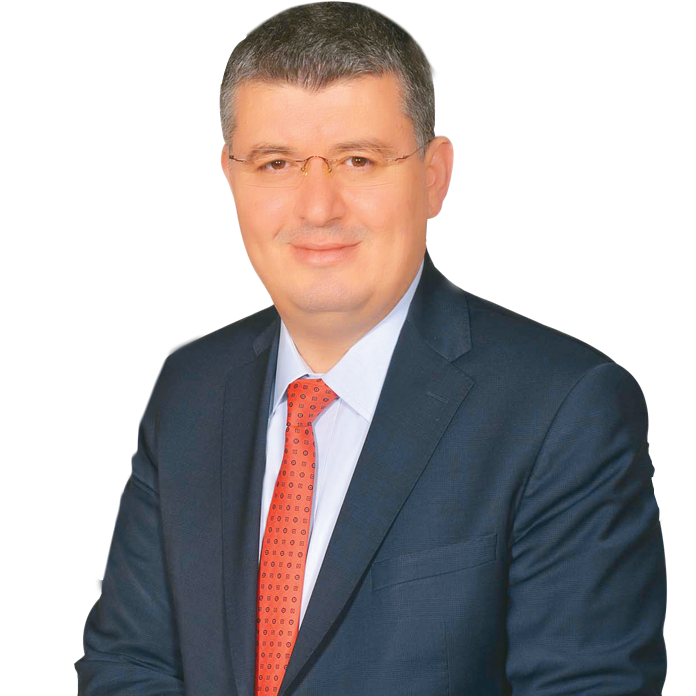A very interesting report of a certain resignation arrived last week from the other side of the Aegean.
The person who stepped down was Greek Prime Minister Kyriakos Mitsotakis’ National Security Adviser Alexandros Diakopoulos.
What makes the matter interesting is not Diakopoulos’ resignation but rather the reason underlying it.
In reference to Turkey’s seismic vessel, Oruç Reis, carrying out explorations in the open waters of the East Mediterranean, Diakopoulos had said, “It is surveying the Greek continental shelf and marking the region.”
The reason behind his resignation was this very statement.
Is there anything wrong or strange in this declaration that requires him stepping down?
No, not under normal circumstances.
Since then, it has been a well-known fact that Oruç Reis would continue carrying out operations in the area until the 23rd of the month.
However, this event was quite intriguing as it is indicative of the current atmosphere in Greece concerning the East Mediterranean dispute and the crisis with Turkey, and the psychological tension Greek politics is experiencing.
Let us elaborate:
The argument the Greek government is using in its internal politics is: “We are not allowing Oruç Reis to conduct exploration activities.”
Mitsotakis’ national defense adviser’s statement, on the other hand, implied that this theory has no basis and is far from reflecting the truth.
Thus, the opposition rose upon this statement and accused the government of “misleading the public.”
Under these circumstances, Diakopoulos said, “Though I had no such intention, the statement I made yesterday led to confusion and caused problems for the prime minister and the government. I accept the responsibility and thereby resign,” and did what he said.
Athens is sparing no effort to turn the East Mediterranean tensions with Turkey into a European problem.
According to a top-level Turkish official, whose words I quoted before – and are better understood these days as his opinions were “on point”: “They are escalating it intentionally. They are acting upon the thought, ‘Let us make a kerfuffle of this event so we can pull Europe to our side.’”
When Greece made the decision to conduct a drill in a vast area including the region in which Oruç Reis is located, Ankara wasted no time in responding and announced that it will be conducting a drill just south of Crete.
Upon this announcement, President Recep Tayyip Erdoğan made the following statements, which sent various messages:
“From now on, Greece is the sole cause behind every negative [event] that is likely to occur in the region. That country itself will be the only one harmed. Those who served up Greece in front of the Turkish fleet will be seen nowhere tomorrow.”
It is clear that Erdoğan’s words contain a clear warning to Athens.
The president is clearly sending the message: “Do not be deceived by those provoking you against Turkey.”
Everybody knows which country comes to mind when we mention the provocation of Athens.
France.
Emmanuel Macron’s administration is not only backing Greece in the East Mediterranean, but it is also provoking it against Turkey.
Nonetheless, it justifies this with the “protection of European Union borders.”
Meanwhile, there is a country that is disturbed by both France’s provocative attitude and Greece’s bratty behavior with Macron’s encouragement.
Germany.
If the matter truly was to protect European Union borders, would Berlin not be expected to react before France?
If we need to find a reasonable answer to such a question, other things should be said.
It is possible to make infer a myriad of conclusions, yet my answer to this question is as follows:
There have been certain overt and covert disputes on numerous fundamental matters between France and Germany for some time.
If you recall, Germany was the country most disturbed in the EU by Macron’s “NATO is brain dead” statement towards the end of 2019.
When Macron said these words, German Chancellor Angela Merkel had reacted behind closed doors and told him:
“I am sick and tired of picking up the pieces. In order to sit and enjoy a cup of tea with you, I am picking up the cups you break daily and glueing them together again.”
Perhaps we need to look for the reasons that drive France and Germany to take different courses of action concerning the East Mediterranean here.
The fact is that Macron’s enthusiasm to be the EU’s strongman disturbs Berlin.
France, which reinforced its military capacity with the advantages presented by the status quo that developed post-World War II, is making maneuvers for a time when military power will have a greater authority over the economy against Germany, a country that is burdened by the disadvantages of the very same status quo.
German Foreign Minister Heiko Maas first traveled to Athens on Tuesday and then arrived in Ankara on a mission to mediate between the two countries.
We are going to continue to follow the results of this visit not in the context of the tensions between Turkey and Greece, but considering how it will impact the covert “cold war” atmosphere between France and Germany.




















